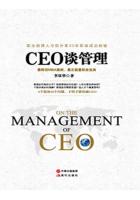There is, however, one vital difference between American and English audiences which would be apt to discourage at the outset any American lecturer who might go to England. The English audiences, from the nature of the way in which they have been brought together, expect more. In England they still associate lectures with information. We don't. Our American lecture audiences are, in nine cases out of ten, organised by a woman's club of some kind and drawn not from the working class, but from--what shall we call it?--the class that doesn't have to work, or, at any rate, not too hard. It is largely a social audience, well educated without being "highbrow," and tolerant and kindly to a degree. In fact, what the people mainly want is to see the lecturer. They have heard all about G. K. Chesterton and Hugh Walpole and John Drinkwater, and so when these gentlemen come to town the woman's club want to have a look at them, just as the English people, who are all crazy about animals, flock to the zoo to look at a new giraffe. They don't expect the giraffe to do anything in particular. They want to see it, that's all. So with the American woman's club audience. After they have seen Mr. Chesterton they ask one another as they come out--just as an incidental matter--"Did you understand his lecture?" and the answer is, "I can't say I did." But there is no malice about it. They can now go and say that they have seen Mr. Chesterton; that's worth two dollars in itself. The nearest thing to this attitude of mind that I heard of in England was at the City Temple in London, where they have every week a huge gathering of about two thousand people, to listen to a (so-called) popular lecture. When I was there I was told that the person who had preceded me was Lord Haldane, who had lectured on Einstein's Theory of Relativity. I said to the chairman, "Surely this kind of audience couldn't understand a lecture like that!" He shook his head. "No," he said, "they didn't understand it, but they all enjoyed it."
I don't mean to imply by what I said above that American lecture audiences do not appreciate good things or that the English lecturers who come to this continent are all giraffes. On the contrary: when the audience finds that Chesterton and Walpole and Drinkwater, in addition to being visible, are also singularly interesting lecturers, they are all the better pleased. But this doesn't alter the fact that they have come primarily to see the lecturer.
Not so in England. Here a lecture (outside London) is organised on a much sterner footing. The people are there for information. The lecture is organised not by idle, amiable, charming women, but by a body called, with variations, the Philosophical Society. From experience I should define an English Philosophical Society as all the people in town who don't know anything about philosophy. The academic and university classes are never there. The audience is only of plainer folk. In the United States and Canada at any evening lecture a large sprinkling of the audience are in evening dress. At an English lecture (outside of London) none of them are; philosophy is not to be wooed in such a garb. Nor are there the same commodious premises, the same bright lights, and the same atmosphere of gaiety as at a society lecture in America. On the contrary, the setting is a gloomy one. In England, in winter, night begins at four in the afternoon. In the manufacturing towns of the Midlands and the north (which is where the philosophical societies flourish) there is always a drizzling rain and wet slop underfoot, a bedraggled poverty in the streets, and a dimness of lights that contrasts with the glare of light in an American town. There is no visible sign in the town that a lecture is to happen, no placards, no advertisements, nothing. The lecturer is conducted by a chairman through a side door in a dingy building (The Institute, established 1840), and then all of a sudden in a huge, dim hall--there sits the Philosophical Society. There are a thousand of them, but they sit as quiet as a prayer meeting. They are waiting to be fed--on information.
Now I don't mean to say that the Philosophical Society are not a good audience. In their own way they're all right. Once the Philosophical Society has decided that a lecture is humorous they do not stint their laughter. I have had many times the satisfaction of seeing a Philosophical Society swept away from its moorings and tossing in a sea of laughter, as generous and as whole-hearted as anything we ever see in America.
But they are not so willing to begin. With us the chairman has only to say to the gaily dressed members of the Ladies' Fortnightly Club, "Well, ladies, I'm sure we are all looking forward very much to Mr. Walpole's lecture," and at once there is a ripple of applause, and a responsive expression on a hundred charming faces.
Not so the Philosophical Society of the Midlands. The chairman rises.
He doesn't call for silence. It is there, thick. "We have with us to-night," he says, "a man whose name is well known to the Philosophical Society" (here he looks at his card), "Mr. Stephen Leacock." (Complete silence.) "He is a professor of political economy at--" Here he turns to me and says, "Which college did you say?" I
answer quite audibly in the silence, "At McGill." "He is at McGill,"
says the chairman. (More silence.) "I don't suppose, however, ladies and gentlemen, that he's come here to talk about political economy."
This is meant as a jest, but the audience takes it as a threat.
"However, ladies and gentlemen, you haven't come here to listen to me" (this evokes applause, the first of the evening), "so without more ado" (the man always has the impression that there's been a lot of "ado," but I never see any of it) "I'll now introduce Mr.
Leacock." (Complete silence.)
Nothing of which means the least harm. It only implies that the Philosophical Society are true philosophers in accepting nothing unproved. They are like the man from Missouri. They want to be shown.















